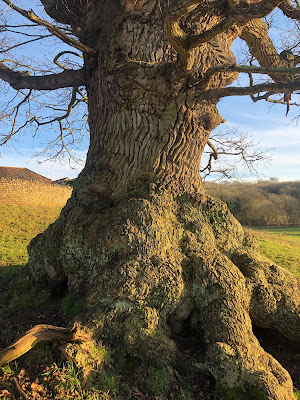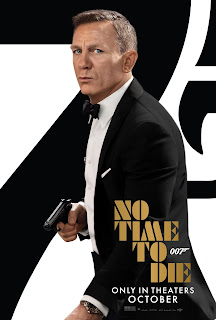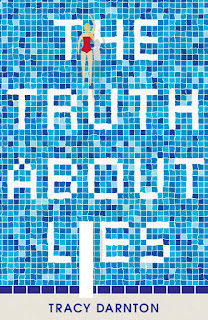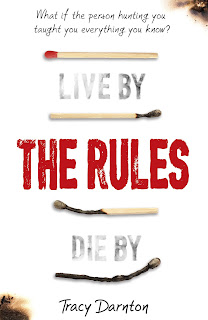
I am back in the world of paid work, but it's more than a little odd as I'm sitting in the meeting room of the Oriel Davies gallery in Newtown, Powys, where Rosie and I are based two days a week for the 'Hidden Voices' series of creative workshops we are doing for the entirely wonderful Credu Powys Carers. This space is the pretty big and the sort of multi-space room I would have killed for in my career as a further education drama teacher. There's only one problem! The voices we are talking about are so hidden that they have never actually turned up. The space which Rosie, (ill today, sadly) and I regularly post videos and her lovely poems on our facebook site Stories of Feeling and Being and try to get a certain amount of comedy gold about the large spider plant which is the only other inhabitant is starkly empty. The real problem of course is that in this area at least - where covid cases in schools are pretty rife - people are more likely to retreat back to safety than venture into possible adventure and enlightenment of spirit. I myself am hardly one to talk because there is an increasingly large hermit part of me at the moment.
Luckily I have a few things to work on, but at least one doesn't come naturally to me and never has. I am not great and now at the age of 62 am unlikely to ever be at self-promotion. Even the phrase makes me feel nervous. I have been, amongst other things, a confidence and assertiveness trainer, but I don't know how tele sales people ever do it. I spend almost as much of my time feeling sorry for them when they're trying to get me to commit to something, as being annoyed how they got hold on an ex-directory number.
But now, dear reader, the shoe is very much on the other foot. I was never any good at phoning schools to get bookings for my own theatre company, so how am I expected to raise the huge sum that's needed to fully fund my wonderful book with 'Unbound', 'Land in Mind', which originated from these very pages. Today, the 22nd day of November, equidistant between my parents' birthdays it is a month since I began to get pledges. Here, then is not so much a list of impressions and advice about trying to do this, but more like what the Americans might call 'a mess of stuff.'
* Be prepared to lose your friends.
I'm not saying it's going to happen, but be prepared that it might. Your timing might be lousy when you approach your first 'victim'. They might be on their way to a funeral, or standing in the middle of a flooded kitchen. Not that you need to think of them like the priest in 'Father Ted', who Ted always phoned when he was on the verege of doing something tricky or dangerous, but you get my point!
* And don't think of people as victims.
No, these are your FRIENDS, and not just pledged in the form of variously shaped humans. Part of the appeal of your book is because it is yours, and people like you and want to support you! Right!
* Don't sell away your life and sanity for a pledgeometer.
You will be drawn to it constantly of course and if you are a dyspraxic worrier like me, far too often. But do try to get a life somewhere in between looks. Wars could happen, monsoons could overwhelm large areas of land, and regimes could fall, and you might not nudge up that extra per cent.
* Even though it is probably an act of madness to create an anthology which involves fifty plus people, stories and poems, features, articles and photographs, rather than something simple like say - a novel, you will automatically have that number of advocates for your (and their) book, to be drawn on in various ways.
NB You might also run a slight risk of losing their support if you approach them too many times, so that, like a grumpy sleeping animal, they just want to stick two metaphorical fingers up, and roll over in the straw.
* Use social media in a way in which you feel confident.
In our first marketing seminar, Cassie, the head of marketing advised us to concentrate our focus mainly on one social media outlet. In my case that would be facebook, where I have had a presence for many years and already annoyed a great many people, (so they're used to it, presumably!) In my case, I have also reintroduced myself to twitter, for the short and snappy one-liner, which also sneakily adds a link to your book at every opportunity. And once people start posting about your book, post back a reply so that those of them who don't know you as some sixty two year old pot-bellied, grizzled old reprobate imagine that they must be talking to the very fount of wisdom itself, especially with a cerebral book like mine, which rather imagines some wise and benevelolent sage scratching away with a swan quill in hallowed cloisters.
* Be able to describe your book in a couple of sentences rather than waffling round the subject every time someone asks you.
'Land in Mind', (it's surely about time I named it - what a lousy marketer I am!), is about recapturing the childhood landscapes that form us and reforming them in our memories so we can continually draw on them when we need them as a form of sanctuary. It's not about 'sort of' anything, and it has a definite absence of 'maybe'. It's a tough trick to learn, but well worth the mastery.
*Think of as many and as different ideas for both marketing and new pledges as you can.
Include copies of your one and only novel, or your partner's artistic talent, as part of a package. Ask contributors to do you an audio, or video, which you can either do in your official update on your 'Unbound' page, or on your own site/social media. Do a regular podcast and - in my case at least - persuade some of those lovely contributing friends to perform their audio or video in favourite landscape. I already have a lovely clip from Philippa Francis by the sea in Sussex, with the moon rising in the background, and another of John Matthews reading two of his Green Man poems, the second of which closes the book. Basically, keep the ideas coming.
* Be prepared for disappointments with contributors, or individual components. I came so close to getting TV explorer and historian Levison Wood, but in the end a quiet covid period for him gave way to a new adventure and we just couldn't fit in a chat first. Alan Lee continues to be elusive, although he has agreed to be involved, and Phil Rickman has provided a tantalising fragment of what could be!
* Try not to get overwhelmed or disheartened by what your running mates are doing.
I begun my pledging period with two other new Unbounders, Louisa and Tree. Because Louisa is better known by her twitter handle of 'Roadside Mum' and has a huge following on there and elsewhere, and because her book 'One in Five' is people talking about poverty through their own stories, she hit the ground running as a huge influx of people supported it in the first week. Now, she's heading steadily towards 50%, while Tree, who has written a fascinating but clearly niche book about the Rider Waite tarot, has made a slower start than me. I find myself willing Tree to get more when I look at her page, while being sort of relieved that Louisa has reduced her thundering pace a little. We still have five months to go.
* For as many pledge disappointments and bad responses you can have delightful ones. My first pledge was Jackie Morris, who is also one of my contributors, and, having announced that she was my first pledge, then told me how ******* hard the whole process would be. (She's dead right!) Then, last week, I remembered I want to pledge for Elizabeth Garner's book of folktales. Having done this, I messaged her on facebook to tell her I'd done that, and to tell her about the book, whereupon she responded to tell me that she'd pledged £75 for the launch and then directed me to the event the evening after where she would be discussing her father's new book 'Treacle Walker', at the Yorkshire Festival of Story. The event was hosted by the festival's director Kevin Crossley Holland, who is also a generous contributor to 'Land in Mind'.
I immediately bought 'Treacle Walker', one of the finest stories of apprecticeship you will ever read, and was drawn back to 'First Light', the incredible collection of essays on Alan Garner and his work, which had been hiding low on my kindle list. The contributors to that anthology include Hugh Lupton, Ronald Hutton, Kath Langrish and Neil Philip, all of whom appear in 'Land in Mind'. It is - needless to say - an 'Unbound' book. Of course it is!

* Which brings me to the last and most important of my musings. I've got the chance to work with 'Unbound', which is turning out to be as unique, as warm and above all, as supportive an organisation as you might hope it to be. It is wonderful to be an 'Unbounder; and that's the case where you are near to the finishing line to a background flourish of trumpets, or just getting into your stride, while still hanging on to the rail a little. Masterminded by the wonderful John Mitchinson, who believed in the idea for 'Land in Mind' from the start, (thank you, Neil Philip) and looks like the rare sort of old testament prophet you can trust, his assistant Aliya Gulemani and Cassie Waters, head of marketing, (who missed our three launches through being in hospital), 'Unbound' is a family. And like all families it groans through the ups and downs of a book's family life, laughs politely at my bad jokes and allows for my dyspraxia. Having been supported a little on reins while you make your first tentative steps, they then allow you to stumble on until you can wander off on your own without going anywhere near traffic. And later, when it comes to your homework, the red pen is used very gently indeed!
So, this is my chance to sell the book to you and encourage you all to pass all this on to like-minded friends. Although 'Land in Mind' was first conceived in a 2018 conversation between Kevin Crossley-Holland and I at Ty Newydd about his poem 'Lifelines', (which begins this anthology), and later almost accidentally provided with it's name and ethos by Catherine Fisher, (coincidentally Kevin's co-tutor on that course), the book really began with two years of interviews on this blog. That is why it seems so appropriate that Sue and Penny provide the introduction to 'Land in Mind' and Kevin's poem follows it.
Without you SASSIES there wouldn't have been a book, so here's me taking another opportunity to thank Sue and Penny, Jackie Marchant and John Dickinson, Kelly McKain and Mary Hoffman, Elen Caldecott and Sharon Tregenza, Lu Hersey and Jasbinder Bilar, Inbali Isserles and Kath Langrish, Malachy Doyle, Frances Thomas, anyone I might have briefly forgotten, and the much missed Kit Berry, to whom the book is dedicated and by whom all of these lovely photos were taken..
Thank you. And now a brief word from our sponsors.
https://unbound.com/books/land-in-mind/



































